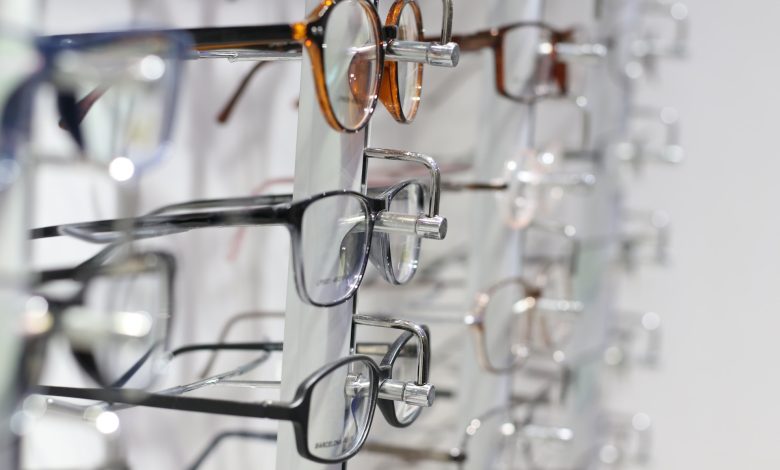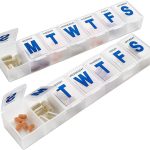Medication Management for Age-Related Eye Conditions

Photo by Harpreet Singh from Unsplash
Age-related eye conditions, such as macular degeneration and cataracts, are prevalent among older adults, often leading to vision impairment or even blindness. Fortunately, medication is pivotal in managing these conditions, offering hope for maintaining or improving visual health.
In this comprehensive article, we will delve into the crucial role of medication in managing age-related eye conditions, focusing on safety and efficacy. We’ll also tackle the earliest signs of cataract development and provide insights backed by relevant research and studies.
Understanding Age-Related Eye Conditions
Before we explore medication management, let’s briefly understand the two most common age-related eye conditions:
- Macular Degeneration: Age-related macular degeneration (AMD) affects the macula, the central part of the retina. Among older adults, it stands as the primary reason for vision impairment. AMD comes in two forms: dry (non-neovascular) and wet (neovascular). Both types can benefit from medication management.
- Cataracts: Cataracts develop when the eye’s clear and natural lens becomes cloudy. They are a natural part of aging and typically develop slowly over time. The earliest sign of cataract development is often a gradual decline in visual acuity.
Medication Management for Age-Related Eye Conditions
Age-related eye conditions pose significant challenges to vision as we grow older. These conditions can not only affect our ability to see the world clearly but also impact our overall quality of life. Below are some recommended medication management therapies to illuminate the path toward a clearer and healthier vision:
Anti-VEGF Therapy for Macular Degeneration
Research has shown that Anti-Vascular Endothelial Growth Factor (VEGF) medications, such as ranibizumab and aflibercept, are highly effective in treating wet AMD. These drugs inhibit the growth of abnormal blood vessels in the retina, slowing down vision loss. Clinical trials have demonstrated their efficacy in improving visual acuity and quality of life. Per the American Academy of Opthalmology, this treatment works to stabilize vision in 9 out of 10 patients. Make sure to consult with your doctor before considering this option.
AREDS Supplements for Macular Degeneration
The Age-Related Eye Disease Study (AREDS) supplements contain vitamins and antioxidants that may help slow the progression of dry AMD. Research has indicated that these supplements can reduce the risk of AMD progression, particularly in individuals with specific genetic factors.
Prescription Eye Drops for Cataracts
While surgery is the most common treatment for advanced cataracts, prescription eye drops containing lanosterol or other compounds are being studied as potential treatments. A study in the journal Nature suggested that these eye drops may help dissolve cataracts and improve vision without surgery. They may not make cataracts disappear completely, but they could make some parts of your vision better. These eye drops might also make cataracts grow slower.
Preventive Measures for Cataracts
To delay cataract development, lifestyle modifications such as wearing sunglasses with UV protection and maintaining a healthy diet rich in antioxidants are recommended. Regular eye exams can help detect the earliest signs of cataract formation, allowing for early intervention.
Safety Considerations
Ensuring the safety of medications used to manage age-related eye conditions is of utmost importance. The well-being of patients and the effectiveness of treatment depend on careful consideration of safety factors. Patients and healthcare providers need to keep these points in mind:
Side Effects
Like any medication, treatments for eye conditions may have side effects. Patients should be guided about the possible advantages and disadvantages.
Common side effects of anti-VEGF therapies for macular degeneration may include mild discomfort, temporary vision changes, or eye redness after injections. These adverse effects usually go away after a few days. However, it’s essential to communicate any concerns with your healthcare provider to ensure your comfort and well-being during treatment.
AREDS, on the other hand, may bring minor side effects like stomach upset for some people.
Monitoring
Regular check-ups with an ophthalmologist are essential to monitor the progress of treatment and adjust medications if necessary. During these check-ups, your eye care specialist will assess changes in your vision, evaluate the effectiveness of the prescribed medications, and discuss any concerns or questions you may have. Open communication with your healthcare provider is key to a successful treatment journey.
Compliance
Patients must adhere to their medication regimen as prescribed to maximize the benefits and minimize potential risks. Regular follow-ups and open communication with healthcare providers can help address any concerns or issues related to treatment compliance.
Adhering to a prescribed medication schedule is vital for the success of treatment. Missing doses or not following your healthcare provider’s recommendations can compromise the effectiveness of the medications and may lead to suboptimal outcomes.
If you have any difficulties or concerns related to medication compliance, don’t hesitate to discuss them with your healthcare team. They can offer guidance and solutions to help you stay on track.
Interaction with Other Medications
It’s essential to inform your healthcare provider about all the medications you are taking, including over-the-counter drugs, supplements, and herbal remedies. Some medications may interact with those prescribed for eye conditions, potentially affecting their efficacy or safety.
Your healthcare provider will conduct a thorough review of your medical history and current medication regimen to ensure there are no contraindications or interactions that could pose risks to your eye health. If necessary, they will make adjustments to your treatment plan to accommodate any potential interactions.
Regular Eye Exams
Even if you are not currently experiencing significant eye issues, regular eye exams are essential for maintaining optimal eye health. These exams can help detect the early signs of age-related eye conditions, allowing for timely interventions and personalized treatment plans.
The frequency of eye exams may vary based on your age, overall health, and risk factors. In general, adults should undergo comprehensive eye exams at least every two years, with more frequent exams recommended for those at higher risk or with existing eye conditions.

Photo by Mali Desha from Unsplash
Conclusion
The management of age-related eye conditions represents a critical component of overall health and well-being as we age. However, thanks to advances in medication management and preventive measures, there is hope for maintaining and even improving visual health as we age.
With the right medications, preventive strategies, and a proactive approach to eye care, individuals can continue to enjoy clear and vibrant vision in their later years, enhancing their quality of life and independence.





